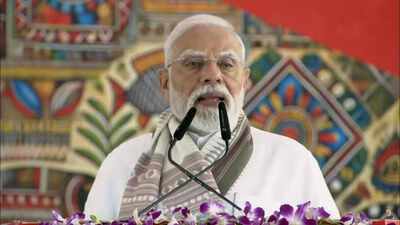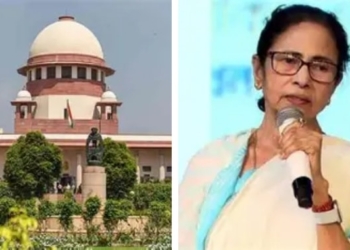Prime Minister Narendra Modi on Friday defended the recently introduced constitutional amendment bill that empowers the central government to remove any minister, including chief ministers or even the Prime Minister, if detained for a certain period.
Speaking at a public rally in Gayaji, Bihar, Modi drew a comparison with government employees, highlighting what he sees as an inconsistency in the system.
“…If a government employee is imprisoned for 50 hours, they are automatically suspended, whether a driver, a clerk, or a peon. Yet a Chief Minister, a Minister, or even the Prime Minister can continue to hold office while in jail,” Modi said. He added that the NDA government has enacted laws against corruption, which also apply to the Prime Minister, reinforcing accountability at the highest level.
The Prime Minister referred to past incidents where government orders and file approvals were signed by leaders from jail, emphasizing that such practices undermine efforts to combat corruption.
The Bills in Question
Union Home Minister Amit Shah introduced three bills in the Lok Sabha earlier this week, including the Constitution (One Hundred and Thirtieth Amendment) Bill, 2025, which allows the removal of ministers facing charges of corruption or serious offences if they remain in detention for 30 consecutive days.
Shah also tabled the Government of Union Territories (Amendment) Bill, 2025, and the Jammu and Kashmir Reorganisation (Amendment) Bill, 2025.
The Opposition has raised concerns, arguing that the bills enable action based solely on allegations, without proven guilt, and could be misused by central agencies like the Enforcement Directorate (ED) or the CBI to target political rivals.
Parliamentary Proceedings and JPC
Following strong protests in the Lok Sabha, the government referred the matter to a Joint Parliamentary Committee (JPC), which has been tasked with submitting its report by the last day of the first week of the next parliamentary session, likely scheduled for the third week of November.
The bills have sparked widespread debate on the balance between accountability and the risk of misuse, with both supporters and critics closely watching the parliamentary process.





























